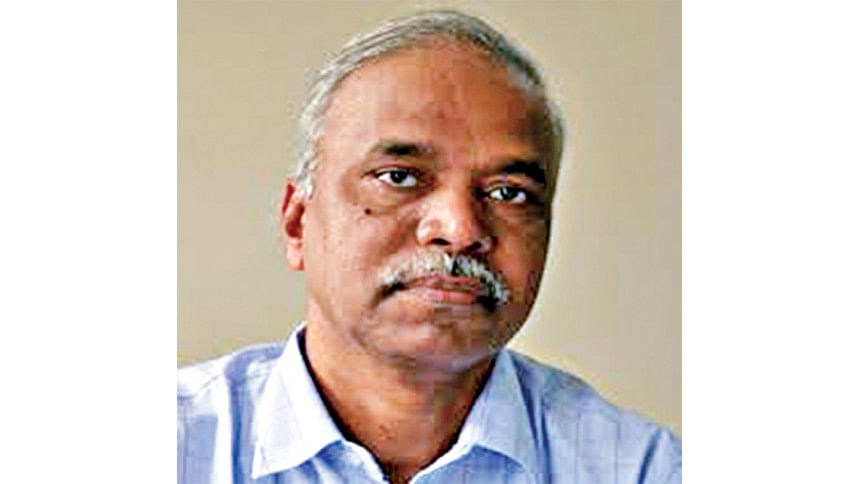RMG’s safety standards must be replicated by others

Safety standards in Bangladesh's garment sector saw a marked improvement after the disastrous Rana Plaza collapse in 2013, but there is still a need for other sectors to improve in this regard, Labour Reform Commission chairman Syed Sultan Uddin Ahmed said in an interview yesterday.
The Rana Plaza collapse, the deadliest industrial accident in the nation's history, was a wake-up call for Bangladesh. The incident cost 1,139 workers their lives, proving that safety was being neglected in industrial sectors, Ahmed told The Daily Star.
However, industrial safety should have been improved from the very beginning in order to protect lives, he said, terming the Rana Plaza collapse a national disaster.
Although safety standards improved a lot in the ready-made garment (RMG) sector in the aftermath of the disaster, especially due to the introduction of the "Alliance for Bangladesh Worker Safety" and the "International Accord for Health and Safety in the Textile and Garment Industry," there are still a few areas that require work.
For instance, in the labour law of Bangladesh, the amount of compensation in case of industrial accidents or death has been set at Tk 2 lakh, which is inadequate, Ahmed said.
The chief of the Labour Reform Commission also said the treatment, compensation, welfare and rehabilitation of the victims of the Rana Plaza collapse have fallen by the wayside over the years although they deserve all those facilities.
He added that the designs of buildings in other industrial sectors should also be improved so that accidents can be avoided and lives can be saved.
He suggested three things to the government.
Firstly, he said to make the investigation report on the Rana Plaza collapse public and take action accordingly.
Secondly, he said the government should replicate the safety model of the Accord and Alliance in other industrial sectors to promote worker safety, reasoning that the garment sector's strides in safety standards were made possible by implementing those recommendations.
More than 200 clothing retailers and brands, mainly European, created the Accord to improve safety standards while North American clothing retailers and brands led the push for the Alliance.
His final recommendation was to significantly improve governance in other sectors and create an environment that allows workers to speak up.
The workers at Rana Plaza were suppressed, so they could not speak up before the building collapsed, he said, adding that many lives could have been saved if they had been empowered to raise their voices.
Additionally, the local administration, including those such as the upazila nirbahi officer (UNO) of Savar, cannot be spared as they did not check the safety measures, he added.
Another important issue concerning the labour law that Bangladesh needs to ratify is ILO Convention 121, which deals with the loss of future earnings following any industrial accident.
The convention ensures proper payment to deceased or permanently injured workers under certain rules of the ILO, he said.
Ahmed mentioned that he submitted the labour reform recommendations to Chief Adviser Professor Muhammad Yunus in Dhaka on Monday.
He said that, in many cases, the safety committees are formed simply to meet legal requirements and keep foreign buyers happy.
Some 1,107 safety committees were formed in the industrial sector in 2021-22, according to data from the Department of Inspection for Factories and Establishments (DIFE).
The number increased to 5,959 in 2022-23, of which 3,269 were in the garment sector and 2,690 were in non-garment sectors, a labour inspection report found.

 For all latest news, follow The Daily Star's Google News channel.
For all latest news, follow The Daily Star's Google News channel. 



Comments